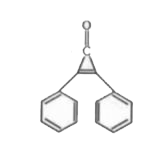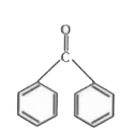Phenol has smaller dipole moment than methanol. Why?
To understand why phenol has a smaller dipole moment than methanol, we need to analyze the structures and the electronic effects in both compounds. Here’s a step-by-step breakdown:
Step 1: Define the Compounds
- Phenol (C6H5OH): It consists of a benzene ring (C6H5) attached to a hydroxyl group (OH).
- Methanol (CH3OH): It consists of a methyl group (CH3) attached to a hydroxyl group (OH).
Step 2: Understand Dipole Moment
- The dipole moment is a measure of the polarity of a molecule. It is influenced by the difference in electronegativity between the atoms and the distance between them.
- A higher dipole moment indicates a more polar bond.
Step 3: Analyze the Polarity of the C-O Bond
- In both phenol and methanol, the bond of interest is the carbon-oxygen (C-O) bond.
- The polarity of the C-O bond is influenced by the groups attached to the carbon atom.
Step 4: Effect of the Benzene Ring in Phenol
- The benzene ring in phenol is an electron-withdrawing group due to resonance effects. It pulls electron density away from the hydroxyl group.
- This electron-withdrawing effect reduces the overall polarity of the C-O bond in phenol because the oxygen atom is not able to hold onto the electron density as effectively.
Step 5: Effect of the Methyl Group in Methanol
- In methanol, the methyl group (CH3) is an electron-donating group due to the +I (inductive) effect. It pushes electron density towards the hydroxyl group.
- This increases the polarity of the C-O bond in methanol, making it more polar compared to the C-O bond in phenol.
Step 6: Conclusion
- Since the C-O bond in phenol has lower polarity due to the electron-withdrawing effect of the benzene ring, it results in a smaller dipole moment compared to methanol, where the C-O bond has higher polarity due to the electron-donating effect of the methyl group.
Final Statement
Thus, phenol has a smaller dipole moment than methanol because the C-O bond in phenol is less polar than that in methanol.
---
- Phenol (C6H5OH): It consists of a benzene ring (C6H5) attached to a hydroxyl group (OH).
- Methanol (CH3OH): It consists of a methyl group (CH3) attached to a hydroxyl group (OH).
- The dipole moment is a measure of the polarity of a molecule. It is influenced by the difference in electronegativity between the atoms and the distance between them.
- A higher dipole moment indicates a more polar bond.
- In both phenol and methanol, the bond of interest is the carbon-oxygen (C-O) bond.
- The polarity of the C-O bond is influenced by the groups attached to the carbon atom.
- The benzene ring in phenol is an electron-withdrawing group due to resonance effects. It pulls electron density away from the hydroxyl group.
- This electron-withdrawing effect reduces the overall polarity of the C-O bond in phenol because the oxygen atom is not able to hold onto the electron density as effectively.
- In methanol, the methyl group (CH3) is an electron-donating group due to the +I (inductive) effect. It pushes electron density towards the hydroxyl group.
- This increases the polarity of the C-O bond in methanol, making it more polar compared to the C-O bond in phenol.
- Since the C-O bond in phenol has lower polarity due to the electron-withdrawing effect of the benzene ring, it results in a smaller dipole moment compared to methanol, where the C-O bond has higher polarity due to the electron-donating effect of the methyl group.
Thus, phenol has a smaller dipole moment than methanol because the C-O bond in phenol is less polar than that in methanol.
Topper's Solved these Questions
- BOOK - ICSECHAPTER - ALCOHOLS, PHENOLS AND ETHERS EXERCISE - EXERCISE (PART-II Descriptive Questions) (SHORT ANSWER QUESTIONS)116videos
ALCOHOLS, PHENOLS AND ETHERS
- BOOK - ICSECHAPTER - ALCOHOLS, PHENOLS AND ETHERS EXERCISE - EXERCISE (PART-II Descriptive Questions) (LONG ANSWER QUESTIONS)20videos
ALCOHOLS, PHENOLS AND ETHERS
- BOOK - ICSECHAPTER - ALCOHOLS, PHENOLS AND ETHERS EXERCISE - EXERCISE (PART-I Objective Questions) (Correct the following statements)15videos
ALCOHOLS, PHENOLS AND ETHERS
- BOOK - ICSECHAPTER - ALCOHOLS , PHENOLS AND ETHERS EXERCISE - SOURCE BASED QUESTIONS4videos
ALCOHOLS , PHENOLS AND ETHERS
- BOOK - ICSECHAPTER - ALDEHYDES, KETONES AND CARBOXYLIC ACIDSEXERCISE - EXERCISE (PART-II DESCRIPTIVE QUESTIONS) ( LONG ANSWER QUESTIONS)478videos
ALDEHYDES, KETONES AND CARBOXYLIC ACIDS
Similar Questions
Knowledge Check
- Question 1 - Select One
Which has maximum dipole moment ?
A B
B C
C D
D
Which has maximum dipole moment?
View SolutionThe carbon-oxygen bond in phenol is slightly stronger than that in methanol. Why ?
View SolutionWhich out of NH3 and NF3 has higher dipole moment and why?
View SolutionExplain why BeH2 molecule has a zero dipole moment although the Be−H bonds are polar?
View SolutionExplain why BeH2 molecule has a zero dipole moment although the Be−H bonds are polar?
View SolutionOut of CS2 and OCS which have higher dipole moment and why?
View SolutionOut of CS2 and OCS which have higher dipole moment and why?
View Solution
